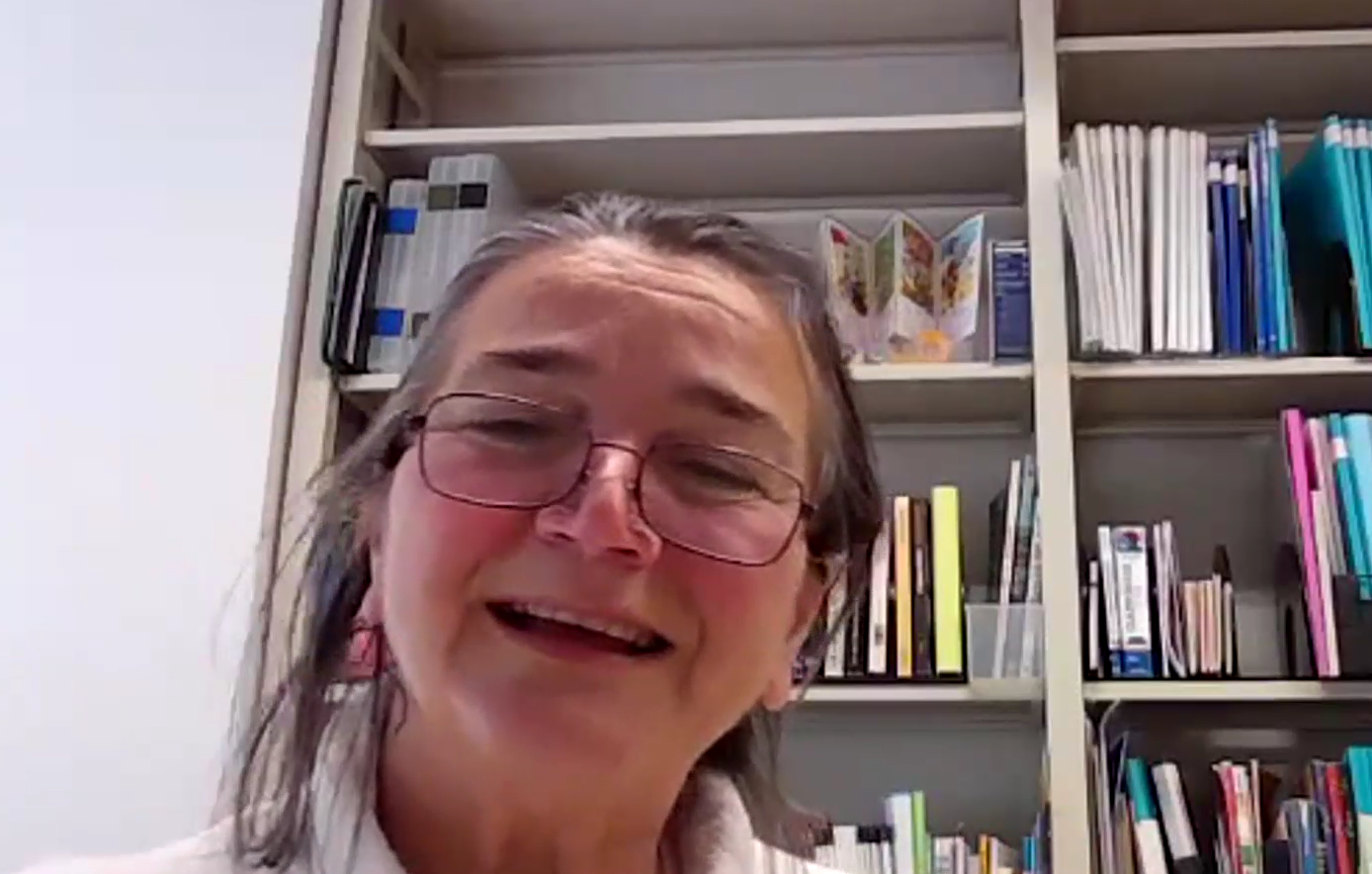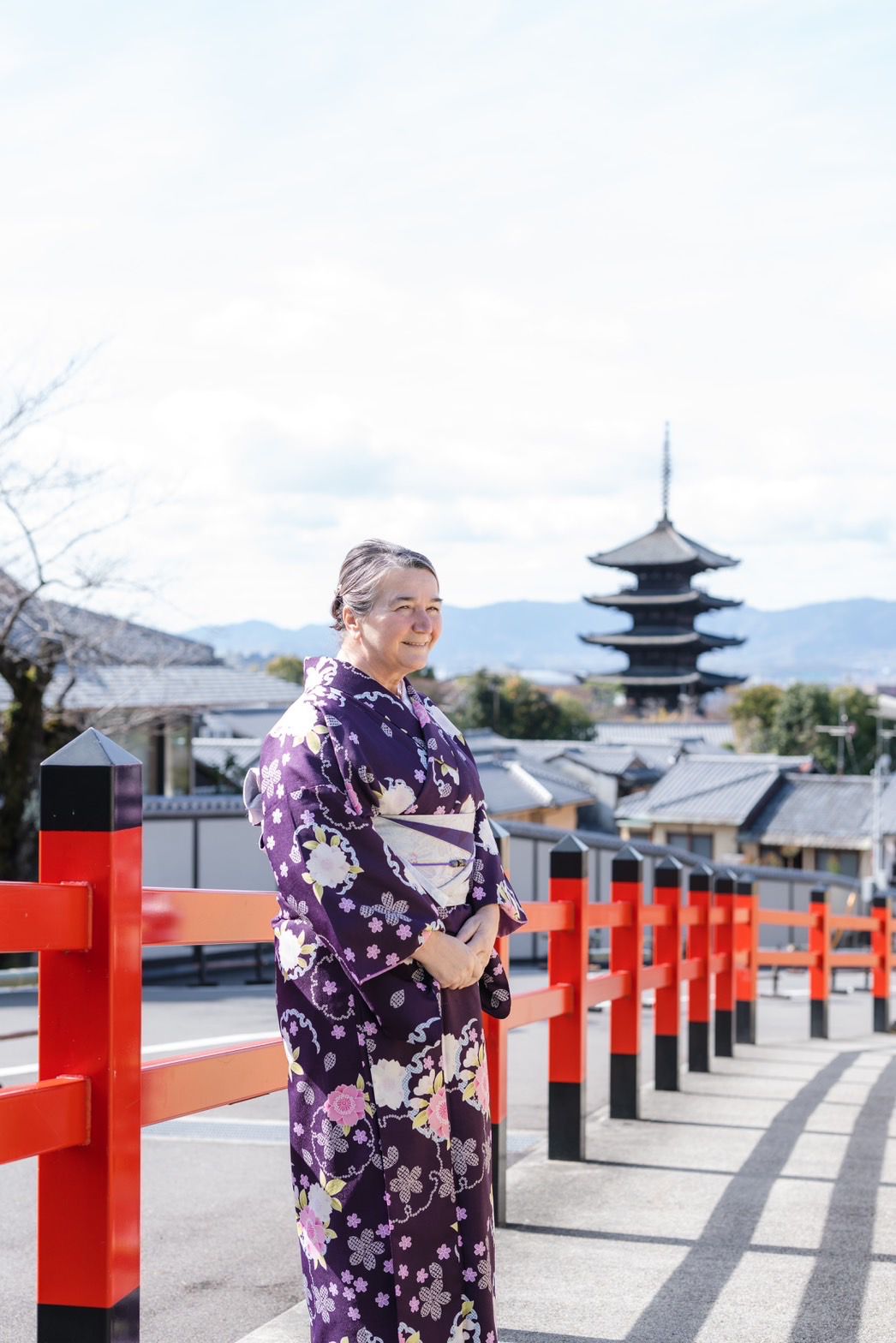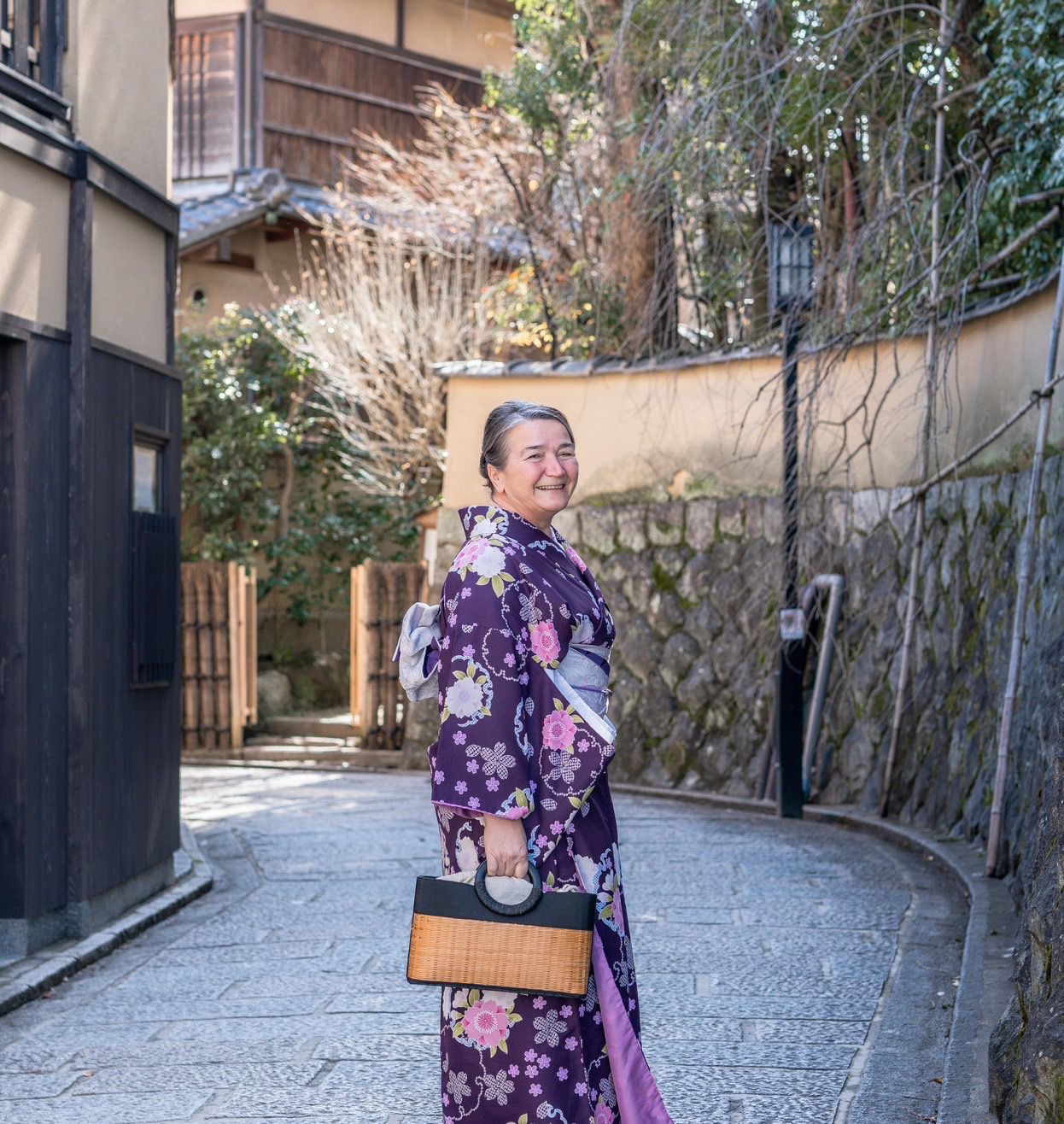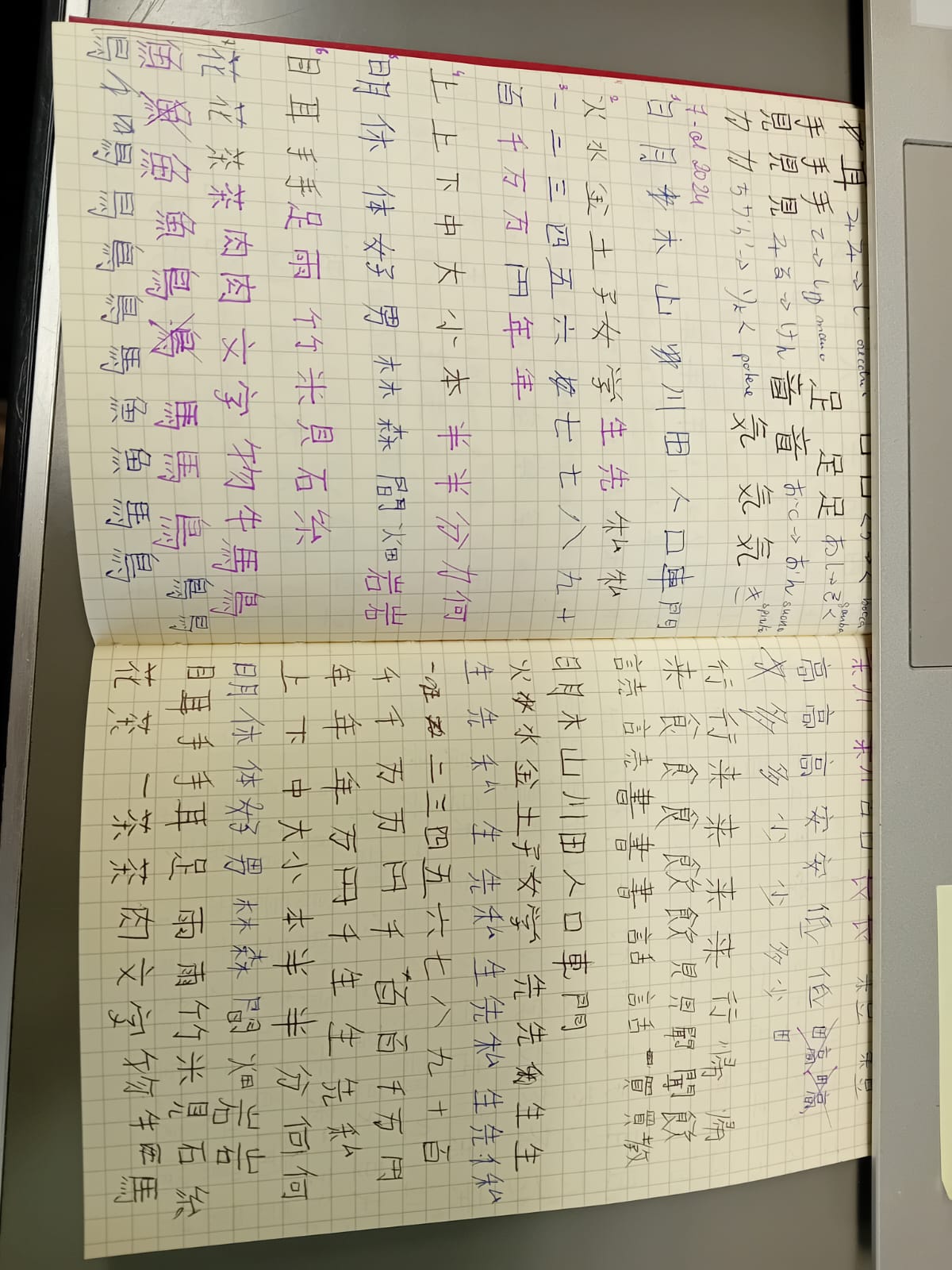Interview Series - Insights from Students -
- Name
- Daniela DANIELI
- Nationality
- Italy
- School at UTokyo
- Graduate School of Arts and Sciences
- Academic Status
- Foreign Lecturer
- Date of enrollment UTokyo
- 2020.10 -
- The language used for the interview
- English

Wish to experience Japanese culture and connect with locals firsthand
First of all, please let me know why you came to Japan.
I applied for a program run by the Italian government that sends people to various countries around the world. To be honest, Japan wasn’t my first choice. It was a highly competitive program, and Australia, USA, and Russia were all out of reach. Landing in Japan was more of a result of circumstances rather than a preference. However, that doesn’t mean I had no interest in Japan at all. I hold three degrees, in Italian literature, history, and law, and I am really very fond of history. And when I had to decide where to go, I just thought about how Roman history is quite similar to the Japanese story. That’s why I decided to come here.
Given the circumstances that brought you to Japan, why did you decide to study Japanese here?
I wanted to get in touch with Japanese culture and the people living in Japan firsthand. I wanted to understand Japan directly, rather than relying on stereotypes.

Then, as motivation for learning Japanese, which is greater, necessity or curiosity?
It is curiosity. My current job here at UTokyo doesn’t necessarily require Japanese, and I don’t interact much with people outside. However, I believe that to truly experience Japan, it’s better to be able to speak at least some Japanese myself.
People now greet me in Japanese
You started studying Japanese two years ago, right? Have there been any changes in the past two years since you started studying Japanese?
FYes, definitely. Now everyone talks to me. Well, to say “everyone” might not be accurate. Of course, there are plenty of shy people, and that’s true all over the world. But really, here in Japan, there are some amazing people. I’ve had some really great experiences here in Japan.

Oh, tell me more, please.
In the mornings, I go to exercise in Shimokitazawa, and I’ve noticed that people who are also exercising there greet me. They say things like, “Oh, Daniela! (Hey, Daniela!)” or “ohayoo gozaimas (Good morning!)” or “ja, mata! (See you later).” It’s just those little interactions, but I feel a sense of warmth from Japanese people.
The priority of important things being different depending on the language
Next, I’d like to ask about your Japanese language learning journey. Over the past two years, you’ve been going back and forth between General Course Level 1 (Lower-elementary) and Level 2 (Upper-elementary). Do you have a specific reason for this approach?
My main job is teaching at UTokyo, so I don’t have much time to study Japanese on my own due to preparation and other tasks related to my classes. I don’t have the opportunity for self-study or review like students do, and I don’t have the luxury of learning through games like children. Therefore, all I can do is come to class and immerse myself in Japanese, striving to understand and participate in speaking practice during class. Even at just the elementary level, it’s taking quite a lot of time, but that’s just how it is.
Indeed, it takes time, but watching you, I realize how challenging it is to learn a completely new language.
Because I also have my own language structures in my head, which are completely different from Japanese, it can be very panic-inducing. I’m starting to understand it now, but it was quite a challenge at first.
I heard that you asked many insightful questions based on sentence B from the textbook after one class (A: “Kinoo no party, doo deshita ka?” - “How was yesterday’s party?” B: “Jikken ga owaranakatta node, ikanakatta-ndes.” - “I didn’t go to the party because my experiment had not finished.”). Later, during an individual tutorial session with me, we discussed this topic again. It was very impressive to me. Could you please explain it once more?
Yes, now I can explain without confusion.
At that time, what I thought was, firstly, in this example, I think the speaker B wants to explain their reason, like “I don’t know, because I didn’t go to the party.” So I expected the sentence to start with something like “because + didn’t go,” but I got confused because “didn’t go (ikanakatta)” appeared only at the end of the sentence. And then, what the speaker wants to say in this example, chronologically speaking, is (1) “had not finished” → (2) “didn’t go,” so I thought the former should be in the past perfect tense, but I realized that both can be in the same past plain form in Japanese. It took me some time to understand that in Japanese, unlike in Latin-based languages, there’s no need to adhere to such strict rules regarding tense and aspect. In short, it’s about the priority of important things being different depending on the language, but it takes a lot of time to understand that.
Learners like you, who articulate your thoughts and logic in this way, help us teachers learn a lot. You give us the chance to discuss among ourselves how we can improve our teaching skills. You’ve also asked various questions about kanji, haven’t you?
Just with the 山 in 富士山 (Fuji-san, Mount Fuji), I found myself puzzled with various thoughts. In English, it’s “Mt. Fuji,” so why add “san” to “Fuji”? Is it similar to the “san” used as a polite suffix in “Daniela-san”? If so, then why use the character 山 (meaning “mountain”)? Though we learned the reading of 山 as “yama” in the initial stages, is there also the different reading “san”? These questions arose one after another.
Just wish to engage in small talk with people I encounter in daily life
Will you continue studying Japanese in the future? What are your goals?
Well, I just want to be able to speak Japanese. I expect to continue using English in formal situations, but I’d like to be able to converse in Japanese in informal situations. I don’t aim to converse with every Japanese person; I just wish to engage in small talk with people I encounter in daily life. I think they would appreciate the effort as well.
How long will you stay in Japan?
I plan to stay for another two years.

So, are you up for reaching the intermediate level ?
Yes, I'll do my best.

